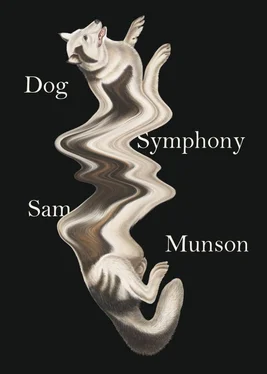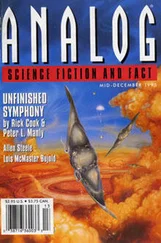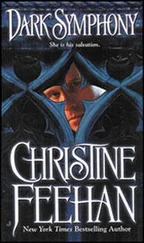Within, the student smell overpowered the last remnants of coagulated blood in my nose and pharynx. Here they leaned against the walls, sat on the floor. Their shadows flickered near the short corridors leading to the restrooms. At the doors of shops, near the electronic ticket kiosks, and outside the currency exchange they formed knots of five and six and held empty metal bowls up to passersby, who threw change and paper money into them. The security officers did nothing to dislodge them. The students pulled out apitos, referee whistles, or small dog-shaped plastic toys (you pressed your lips to their tails) and blew short, shrill notes to greet each officer as he or she passed. Other whistle-bearing students heard and responded. The blasts propagated themselves through the shallow nave of the original station building, which dates to the presidency of Victorino de la Plaza. The officers smiled faintly at the whistlers and passed onward; as I was spitting blood into a trash can the owner of a cart selling fried meat slabs tapped an officer’s shoulder, begged her to intervene. These fucking kids are driving me crazy, ma’am, he said. But she jerked away from his touch. The meat vendor suffered so-called state paralysis. Cartographic grease stains enriched his apron.
To reach the platform from which the Belgrano-line trains departed, I had to pass through the stone building pierced with whistles. All the stores and even the food-sellers had set out meat and water bowls. The disappointed fried-meat vendor was, in fact, beginning to lay fresh slabs down and to pour fresh water from a plastic bottle. He knelt by his bowls, head lowered, eyes almost shut. The vast doors leading to the platforms flamed up before me, filled with sunset, orange, reddish, umber — in general furnace-like. A raft of trains was boarding: the announcements rippled through and over each other, trains for Coronel Pringles, Mendoza, Tucumán. The granular human flow ramified. The students stayed where they were against walls and near doors. Security officers continued to amble and pace. My train was not due for another forty-six minutes.
Other travelers loped alongside me, hushed and polite, gazing at the dark floor tiles (as if measuring distances). As I (we) neared the doors, as the curved glass roofs above the platforms gleamed and the rail yards extended their extensibility, the stream thickened and hardened, slowed. Our progress stopped. The segmented glass glowed, in a chitinous fashion. Security officers trotted from traveler to traveler, asking soft-voiced questions. They followed no visible pattern, moving as the winds of the state blew them and wearing their blinding smiles. Dental smiles. No other kind is known to taxonomic science. A male officer leaned in to ask a woman in an indigo dress with white flowers standing near me: Is your destination domestic or foreign? She answered domestic, and the officer touched her elbow. The woman sped off, toward a widening group gathered near a newspaper kiosk. The officer’s nameplate read TUCHOLSKY. His face was long and ended in a roundish vertex like a rat’s. I readied myself for his question. But he did not ask it. He showed me his upper teeth — hypertrophied, again like a rat’s — and drifted away.
Tendrils budded from the domestic train group. The tendrils became thick trunks of their own. A vegetal process took place in metaphor. Also reality. Each trunk was a line; each line formed, I saw, according to destination: Coronel Pringles, Mendoza, Tucumán. At the head of each line an officer in sky blue. The travelers leaving Argentina were far fewer in number. I was one, an old man skillfully peeling an orange with his thumb — the rind came away in a single unbroken skein — was another, and a young family, all short, wide-shouldered, and black-haired, mother, father, and daughters, formed the third and last group. The security officer who took my initial information (her name plaque read MAUTHNER) handed me off to another officer (GIEHSE). Giehse wanted to know my destination country. I told her Chile. She held my passport up, to compare my photo with my face, and asked me what had happened. I answered with a brief lie. Two guys had beaten me up in Balvanera because they thought I was looking at their girlfriends, I said. I don’t blame you for leaving town, Giehse answered. I asked what the next step was, and if she thought I would make the next train. That is not up to me, Mr. Pasternak, said Giehse, you’ll have to speak to our exit visa section administrator. She pointed her impeccable finger (the sunset blazed through it) toward the far end of the concrete platform where the passengers would wait to embark. It was completely empty except for a line of brown notice boards and a sky-blue hexagonal shed at the northwestern tip.
The old man kept his eyes on his orange and the squat family glanced downward as I passed. They were bound for Bolivia, that’s what the wife told the officer questioning them, her voice low and measured. I looked behind me, at the everyday void, in which Giehse stood. I took one step back, then another, a third. I’d almost passed her, I was close enough to smell her grassy perfume, when she gripped my upper arm. Is there some problem, Mr. Pasternak, asked Giehse. I said that there was no problem, just that I thought I had forgotten my razor back at my hotel. And which hotel was that, said Giehse. La Veneziana, I said, I always stay there. I know the hotel, said Giehse, it’s a quality establishment. You don’t need to worry, you can let them know you left something and they’ll send it along to Chile. A line of officers now divided this section of the station from the central hall, questioning and directing departing passengers to the appropriate group, and the domestic travelers’ conclave knotted, swelled, darkened. I envied them and their Coronel Pringles, I envied them and their Tucumán. Mr. Pasternak, said Giehse, I’m afraid once you’ve reached this point you have to continue, otherwise we’ll need to process you all over again and you’ll miss your train. Her fingertips rustled against my windbreaker. Yes, the tones, the suave tones. I didn’t move. I watched the domestic travelers. Mr. Pasternak, said Giehse, is there some issue you’d like to tell me about?
I turned to face the blue shed, and Giehse released my arm. You have nothing to worry about vis-à-vis your possessions, Mr. Pasternak, she said as I walked, continuing past her into the warming emptiness. The metal and glass vaults covered most of this platform, but my destination lay on the exposed section, at the extreme end. I was the only traveler on the Belgrano line, it seemed; no one had been processed before me. My footsteps scraped against the porous, faintly blue concrete of the platform. The sun fragmented on the shining roofs of the shantytown spreading eastward from the bus parking lot across Mugica, spreading and taking root beneath the Arturo Illia overpass. Radios and speakers blared there as well, but not the strains of the Dog Symphony, I noted: soccer announcers, droning old songs from Mexico, advertisements for soap and the lottery. This mild cacophony went unheard by any security officers. None stood with me on the platform. The Department knew none would be required, that all the travelers would conduct themselves like obedient lackeys from that point onward; they would march across the concrete, enter the dark shed, and kneel (even if they remained standing).
I made my way toward the blue kiosk. At first it looked empty, so I dawdled, I watched the other travelers, I smelled the air — lilac, iron, and rotting trash — and I listened to the creaking of my suitcase. The kiosk was not empty. A human or allegedly human figure stood within, perfectly motionless and erect. A stooped man, I saw, wearing a white shirt, the collars and cuffs grayed by clerical grime. His clean naked scalp, ivory with age, defied the whiteness of the shirt as well; his hexagon within the kiosk was empty except for his wheeled stool and a sky-blue safe the size of a North American mailbox. I approached him, suitcase sighing (like the breath in my lungs). I crossed the wooden threshold (also sky blue). He asked for my passport, and his molars flashed.
Читать дальше












